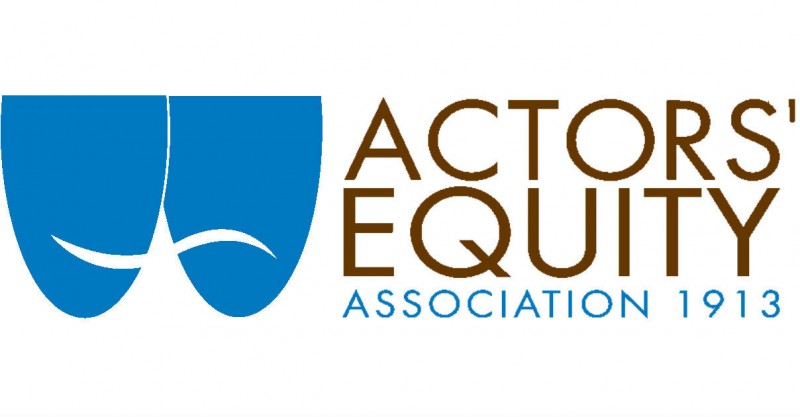
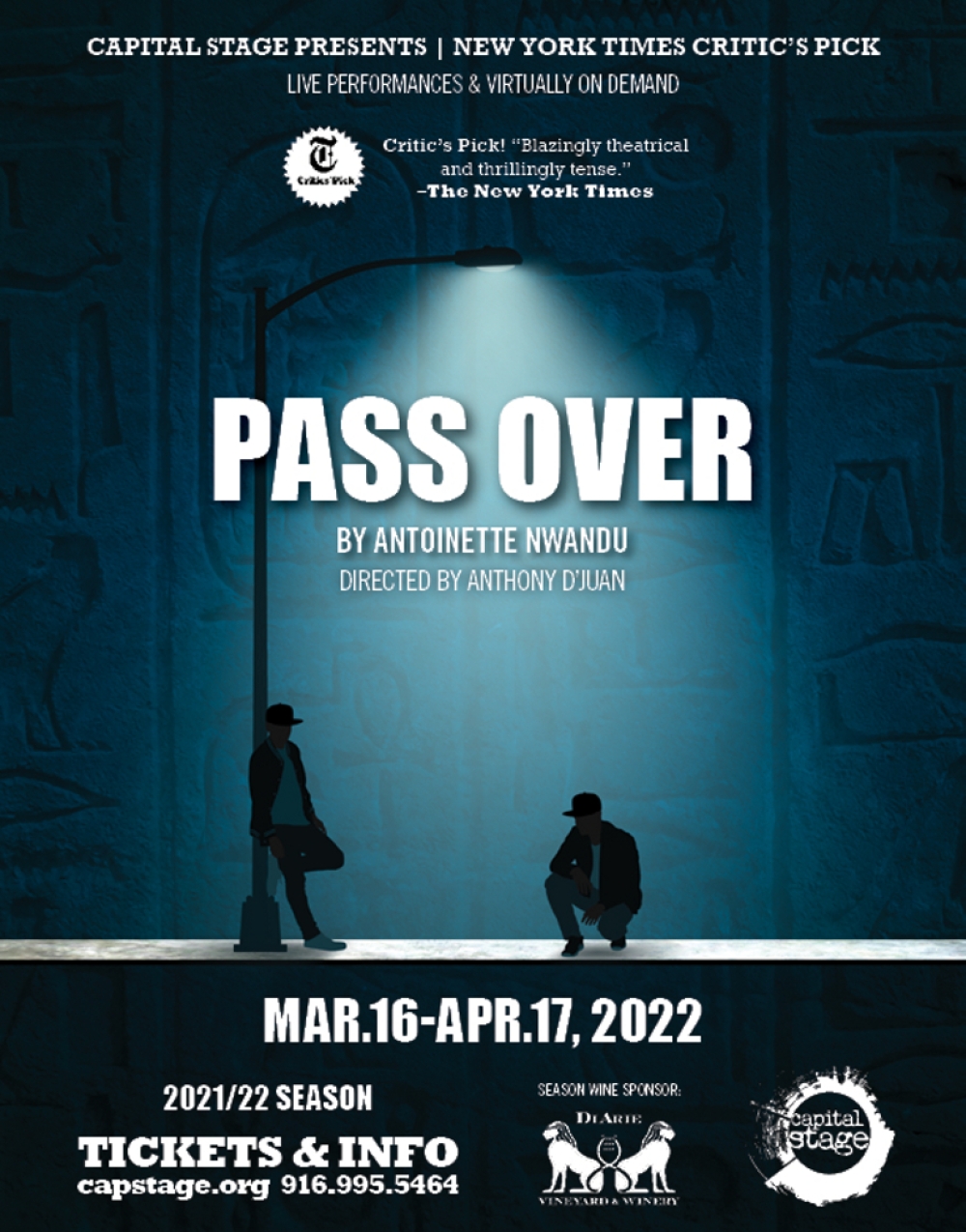
Artistic Director Michael Stevenson &
|
|||||||
| by Antoinette Nwandu | |||||||
|
Directed by Anthony D'Juan |
|||||||
|
Live Theatre & Virtually On Demand March 16 - April 17, 2022 Performance Length: 75 Minutes, No Intermission |
|||||||
|
|||||||
|
Stephen C. Jones** |
|
||||||
|
Lighting Designer |
|||||||
| Sound Designer/Engineer Ed Lee |
Properties Designer Rebekah Fegan |
||||||
|
Stage Manager |
|||||||
| Assistant Stage Manager Katherine Cannon* |
|||||||
| ADVISORY: Gunshots & strobe effects will be used during the performance. | |||||||
 |
|||||||
|
“Pass Over” is presented by arrangement with Concord Theatricals on behalf of Samuel French, Inc. www.concordtheatricals.com The world premiere of PASS OVER was produced and presented at Steppenwolf theatre Company, Chicago, IL; Anna D. Shapiro, Artistic Director and David Schmitz, Managing Director Produced by Lincoln Center Theater Developed by Cherry Lane Mentor Project, |
|||||||
| *Member Actors' Equity Association | **Member United Scenic Artists 828 | |||||||
Follow Us:
OUR MISSION
Capital Stage’s mission is to entertain, engage and challenge our audience with bold, thought provoking theatre.
THINGS TO KNOW
COVID-19 SAFETY:
To attend a performance everyone in your party must present proof of vaccination for COVID-19 (with a second dose at least 14 days prior to the date of the performance), plus a booster (if eligible and 6 months after your final dose) with a valid photo ID. Masks also must be worn in the theatre and interior lobby areas at all times. NO FOOD OR BEVERAGES ARE ALLOWED INSIDE THE THEATRE.
VIDEO/PHOTOS:
Recording and photography of any kind are prohibited at Capital Stage.
CELL PHONES:
Patrons are asked to turn communication devices off upon entering the theatre.
LATE SEATING & RE-SEATING:
Due to the design of our theatre, we cannot guarantee seating for late arrivals or for patrons who leave the theatre during the performance. As a courtesy to our artists and our audiences, late arrivals will be seated in a suitable location by our staff if possible and at the appropriate intervals.
REFRESHMENTS:
Only concession items purchased in the Wine & Dessert Bar are allowed. Concessions will be limited and can only be consumed while on our Patio. NO FOOD OR BEVERAGES ARE ALLOWED IN THE THEATRE.
CHILDREN:
Capital Stage is noted for bringing intimate bold productions to our region and we encourage young adults to experience a live performance. Children age sixteen and up are welcome at Capital Stage unless specifically noted in the production’s description.
WHEELCHAIR SEATING:
Seating locations at Capital Stage for patrons using wheelchairs or with a disability are located in the first row. Tickets for these seats may be purchased in person or by calling the Box Office at 916-995-5464.
RESTROOMS:
Restroom facilities are located in the lounge behind the Wine & Dessert Bar.
INFORMATION:
Brochures and information about upcoming Capital Stage productions and events are available in the box office or by visiting capstage.org.
Capital Stage is a member of Actors' Equity Association, the Union of Professional Actors and Stage Managers in the United States.
Capital Stage is a member of Theatre Communications Group (TCG), the national organization for the American theatre.

Capital Stage is a member of the National New Play Network, the country’s alliance of leading nonprofit theaters that champion the development, production and continued life of new plays.
Capital Stage is a member of Blue Star Theatres, offering discounts to Military personnel, Military family members, and Veterans.
Setting
SETTING
now. right now
but also 1855
but also 13th century BCE
TIME
a ghetto street. a lampost. night
but also a plantation
but also Egypt, a city built by slaves
About The Play
By Stephanie Tucker, PhD
When Antoinette Nwandu graduated from Tisch with her MFA in playwriting, to embark upon a professional career, it was 2008—smack in the midst of the Great Recession. Consequently, she was relieved to get a job teaching, which, not only, became a source for financial security but also provided her with the models for Pass Over’s protagonists, who are “super-loosely inspired by young men I had been teaching at the Borough of Manhattan Community College.” In addition, she “was finding out that my young black and brown students were heavily policed.” Such was the kernel.
Other inspirations include “the murder and then the trial of the murder for Trayvon Martin,” the history of chattel slavery in this country, and the Book of Exodus—to which Nwandu’s stage directions point:
SETTING
now, right now
but also 1855
but also 13th century BCE
TIME
a ghetto street. a lamppost. night
but also a plantation
but also Egypt, a city built by slaves
By drawing analogies among young Black men on an urban street corner, or their “block”, slaves bought and sold to 19th-century plantation owners, and Israelites who fled Egypt on a journey to the “Promised Land,” Nwandu places her protagonists, Moses and Kitch, in a vast historical, and Biblical, realm.
The playwright’s most immediate theatrical inspiration, one noted by critics and readily acknowledged by the playwright herself, is Samuel Beckett’s most popular and well known play, Waiting for Godot. Not only had Nwandu written her undergraduate thesis on Beckett’s novels (an impressive challenge for any accomplished scholar, much less a college senior—even at Harvard!), but while conceiving Pass Over, she had her “lightbulb moment” while attending a Broadway production of Godot, with the elderly Knights, Sirs Patrick Stewart and Ian McClellan, playing the aging tramps, Vladimir and Estragon, respectively.
“I was like, oh, in this existential darkness they still get to be old,” said Nwandu. Yet her protagonists, Moses and Kitch, like the young men in her classroom, are “people for whom life should just be opening up. And to have the problems that in Godot are specifically old men problems—that existential dread, really.”
Yet, like Beckett’s characters, Moses and Kitch banter, tell stories, joke around, entertain “guests” and clearly care for each other. Pass Over’s set also mirrors Godot’s—“A country road” becomes “a ghetto street”; “A tree” transforms into a “lamppost,” post World-War II-Europe into “now, right now.”
To date, Pass Over exists in three versions. The original Steppenwolf production, which Spike Lee filmed for Prime Video; the 2018 revision Nwuandu wrote for its New York debut at Lincoln Center Theater and published by Samuel French (the one CapStage is performing), and a third iteration for the 2021 Broadway run. In the last, Nwandu revised the ending “in a daringly and self-consciously theatrical way,” to quote one reviewer.
Although the first two versions exist (one on video, the other in print), the third iteration, to date, does so only to those who have contributed to its production or in the memories of those fortunate enough to have seen the Broadway production.
An Apologia:
Although Antoinette Nwandu has discussed the reasons for her most recent (2021) revisions, I believe sharing them prior to an audience’s viewing our production of Pass Over might diminish the immediate theatrical experience.
So I shan’t, but feel to ask me afterwards.
‘Til then, enjoy a magnificent play!
Stephanie Tucker, Dramaturg
About The Playwright
By Stephanie Tucker, PhD
Born in 1980, Antoinette Chinonye Nwandu grew up in a family which adhered to “a very charismatic Evangelical cult.” Living in Los Angeles, she applied for and was awarded a scholarship to the elite Brentwood School, a stepping stone to her acceptance at Harvard. Before veering into theater, Nwandu concentrated in English literature, writing her undergraduate thesis on Samuel Beckett’s novels. After graduating magna cum laude, she studied at the University of Edinburgh, earning a Master of Science degree in “cultural politics”; the topic of her thesis—the 1950’s demise of Scottish fringe theatre, which made her question the similar fate of American political theatre. To quote the playwright: “Was it TV, was it culture, was it McCarthyism? And then the larger idea is: what can we do to bring it back?”
Returning from Scotland with a newfound interest in theater, Nwandu applied to and was accepted into NYU’s prestigious Tisch School of the Arts’ MFA program in playwriting. During this time, she worked with Katori Hall, whose Olivier-Award-winning play, The Mountaintop, CapStage produced in 2013, also directed by Anthony D’Juan, some audience members may remember.
After receiving her MFA, Nwandu took a job at the Borough of Manhattan Community College, teaching speech and theater, where she worked for 7+ years. During this time she also wrote plays—including Black Boy and the War (2011); Vanna White Must Die (2012); 4 Sustenance (2012); and FLAT SAM (2013). In 2017, her breakthrough play, Pass Over, premiered at Chicago’s Steppenwolf Theatre Company. The following year, Victory Gardens Theatre, also in Chicago, produced Breach: a manifesto on race in america through the eyes of a black girl recovering from self-hate.
Nwandu has received a number of prestigious theatrical awards: including the 2009 Lorraine Hansberry Playwriting Award for FLAT SAM; the 2017 Paula Vogel Playwriting Award for Pass Over and Breach. Pass Over also won the 2019 Lucille Lortel Award for the Best New Play.
Sounding somewhat “Beckettian” herself, Nwandu has described her artistic trajectory as, “Nothing, nothing, nothing, nothing, and then a few things at once.” Among these “few things” include working with Spike Lee on his filming of a performance of Pass Over for Amazon Studios; writing for the second season of Lee’s television show, “She’s Gottta Have It”; and adapting Nafissa Thompson-Spires’s short story, “Wash Clean the Bones,” also for Amazon Studios, while also writing plays.
Alas, Nwandu’s recent coming-of-age drama, Tuvalul or, the Saddest Song, scheduled for a Spring 2020 production at the Vineyard Theatre, became victim to Covid—and had to be cancelled temporarily. However, the Vineyard’s promotional description suggests its autobiographical bent:
Los Angeles in the mid-nineties and twelve-year old Jackie is at a crossroads. She’s just been accepted to a private school in Brentwood, the affluent, white neighborhood that also happens to be ground zero for the O.J. Simpson murder trial. At home, the Lord is alive and well, the rent’s past due, and Momma’s boyfriend just came back to town. Sexuality and spirituality, race and class, love and violence collide as Jackie attempts to make sense of her life . . . ”
…a work which may shed further light on the playwright’s life and artistic aspirations. And, perhaps, reflect on her past accomplishments, while pointing towards future pursuits.
Sponsors
>Cast
Creative Team
Antoinette Nwandu
Anthony D'Juan
Vernon Lewis
Melissa Jernigan*
Michael Stevenson
Keith Riedell
Katherine Cannon*
Carlos Llontop
Stephen C. Jones**
Isaiah Leeper
Mari Oyaizu Carson
Ed Lee
Rebekah Fegan
Kimberly Taketa
Matt K. Miller
kaden zaldumbide^
Nicholas Raborn^
Samantha McLean Haas
Special Thanks
Donna Chipps
Parker Hopps
Jim Hensley, President Abbey Flooring, Inc.
Oak Park Brewing Company
Robert Mandelson
Production Staff
Production Manager/Asst. Stage Manager - KATHERINE CANNON*
Technical Director - CARLOS LLONTOP
Lead Carpenter - RICH KIRLIN
Scenic Charge Artist - SAMANTHA McLEAN HAAS
Sound Designer & Engineer - ED LEE
Lead Electrician/Costume Designer - MARI OYAIZU CARSON
Literary Manager/Dramaturg - STEPHANIE TUCKER, PhD.
Stage Manager - MELISSA JERNIGAN*
Stage Management Production Assistant - KADEN ZALDUMBIDE^
Assistant to the Director/Asst. Dramaturg - NICHOLAS RABORN^
Fight Choreographer - MATT K. MILLER
Properties Coordinator - KIMBERLY TAKETA
Properties Assistant - ANDREW FRIDAE^
Sound Assistant - RAND DOERNING^
Lighting Assistant - CECILIA CASTILLO JUAREZ^
Paint/Costume Assistant - KAITLIN WEINSTEIN^
Assistant to the TD & PM - ANA MUNTEAN^
BIPOC Liason - JAMES WHEATLEY
Build Crew - RAND DOERNING^, ANDREW FRIDAE^, CECILIA CASTILLO JUAREZ^, RICH KIRLIN, ANA MUNTEAN^, NICHOLAS RABORN^, KAITLIN WEINSTEIN^, KADEN ZALDUMBIDE^
COVID-19 Safety Managers - KATIE CANNON, ELIJAH PETERS, RUBY SKETCHLEY
Graphic Designers - DAN LYDERSEN, MISTY MCDOWELL
Photographer - CHARR CRAIL
Videographer/Editor - MISTY MCDOWELL
Webmaster - MISTY MCDOWELL
^ Capital Stage Apprentice | * Member Actors' Equity Association
Meet the Company
Dane Troy*
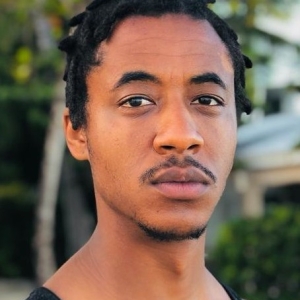 Dane is a storyteller. He hails from Atlanta and is a graduate of the University of Georgia's professional theatre program. Dane has performed professionally in Atlanta, Chicago, Los Angeles, Milwaukee, New York, North Carolina and the Bay Area. Dane is thankful to make his debut in Sacramento and grateful to Anthony D'Juan & the Capital Stage team for this opportunity. He sends lots of love to his family and his wife Paige Mayes.
Dane is a storyteller. He hails from Atlanta and is a graduate of the University of Georgia's professional theatre program. Dane has performed professionally in Atlanta, Chicago, Los Angeles, Milwaukee, New York, North Carolina and the Bay Area. Dane is thankful to make his debut in Sacramento and grateful to Anthony D'Juan & the Capital Stage team for this opportunity. He sends lots of love to his family and his wife Paige Mayes.
Kriston Woodreaux*
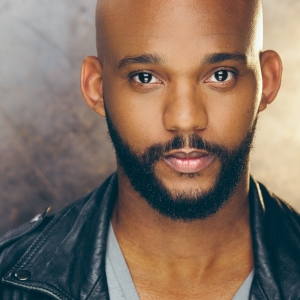 Kriston is a multidisciplinary artist based in Chicago, IL. His recent productions include BRUTAL IMAGINATION (Salvage Vanguard); EVERY BRILLIANT THING, NOTES FROM THE FIELD, and THIS GIRL LAUGHS, THIS GIRL CRIES, THIS GIRL DOES NOTHING (ZACH Theatre); THE CITY WEARS A SLOUCH HAT (Rude Mechanicals); ACTUALLY (WorkHound), MONROE (Austin Playhouse); HENRY IV (The Hidden Room); and NEVA (Theatre en Bloc). Kriston is ignited by the opportunity to share this story alongside such a talented and dedicated team.
Kriston is a multidisciplinary artist based in Chicago, IL. His recent productions include BRUTAL IMAGINATION (Salvage Vanguard); EVERY BRILLIANT THING, NOTES FROM THE FIELD, and THIS GIRL LAUGHS, THIS GIRL CRIES, THIS GIRL DOES NOTHING (ZACH Theatre); THE CITY WEARS A SLOUCH HAT (Rude Mechanicals); ACTUALLY (WorkHound), MONROE (Austin Playhouse); HENRY IV (The Hidden Room); and NEVA (Theatre en Bloc). Kriston is ignited by the opportunity to share this story alongside such a talented and dedicated team.
Ian C. Hopps*
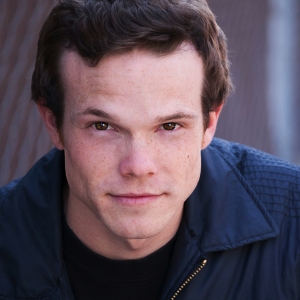 Ian is grateful to be back at Capital Stage to share this experience with an incredibly talented team of artists. Previous appearances at CapStage include SWEAT, LUNA GALE, and STUPID FUCKING BIRD. Other local productions include HAMLET, A MIDSUMMER NIGHT’S DREAM, MACBETH, and THE TEMPEST (Sacramento Theatre Company); COMEDY OF ERRORS, MARY STUART, and ROMEO & JULIET (Davis Shakespeare); AN IDEAL HUSBAND, THE 39 STEPS, and THE ROVER (Big Idea Theatre). Ian extends immense gratitude to those supporting the return of live theatre, especially here in the Sacramento region. (www.ihopps.com)
Ian is grateful to be back at Capital Stage to share this experience with an incredibly talented team of artists. Previous appearances at CapStage include SWEAT, LUNA GALE, and STUPID FUCKING BIRD. Other local productions include HAMLET, A MIDSUMMER NIGHT’S DREAM, MACBETH, and THE TEMPEST (Sacramento Theatre Company); COMEDY OF ERRORS, MARY STUART, and ROMEO & JULIET (Davis Shakespeare); AN IDEAL HUSBAND, THE 39 STEPS, and THE ROVER (Big Idea Theatre). Ian extends immense gratitude to those supporting the return of live theatre, especially here in the Sacramento region. (www.ihopps.com)
Antoinette Nwandu
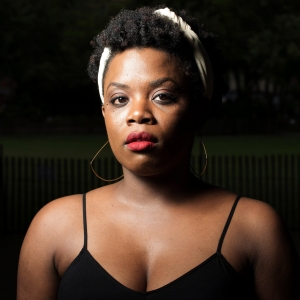 Antoinette Chinonye Nwandu is a New York-based writer for stage, film, and television. Her play PASS OVER made its New York debut at LCT3/Lincoln Center in 2018. A filmed version of the Jeff Award-winning Steppenwolf production—directed by Spike Lee— premiered at the 2018 Sundance Film Festival and at SXSW, and is currently streaming on Amazon Prime. Victory Gardens produced the World Premiere of her play BREACH: AMANIFESTO ON RACE IN AMERICA THROUGH THE EYES OF A BLACK GIRL RECOVERING FROM SELF-HATE in February of 2018.
Antoinette is a MacDowell Fellow, a Dramatists Guild Fellow, an Ars Nova Play Group alum, and a Eugene O’Neill Playwrights Conference Literary Fellow. Honors include a Lilly Award (2020); a Lucille Lortel Award (2019); the Whiting Award (2018); the Paula Vogel Playwriting Award (2017); the Lorraine Hansberry Playwriting Award (2008); the Negro Ensemble Company’s Douglas Turner Ward Prize (2008), and spots on the 2016 and 2017 Kilroys lists. Her work has been supported by the Sundance Theater Lab, Space on Ryder Farm, Ignition Fest, the Cherry Lane Mentor Project, the Kennedy Center, Page73, PlayPenn, Southern Rep, The Flea, Naked Angels, Fire This Time and The Movement Theater Company.
Antoinette has a bachelor’s degree in English, magna cum laude, from Harvard College; an MSc from The University of Edinburgh; and an MFA from NYU Tisch. Antoinette is a writer on the second season of Spike Lee’s She’s Gotta Have It for Netflix, and will premiere her play TUVALU, OR THE SADDEST SONG at the Vineyard Theater in New York City once the theater is allowed to reopen.
Antoinette Chinonye Nwandu is a New York-based writer for stage, film, and television. Her play PASS OVER made its New York debut at LCT3/Lincoln Center in 2018. A filmed version of the Jeff Award-winning Steppenwolf production—directed by Spike Lee— premiered at the 2018 Sundance Film Festival and at SXSW, and is currently streaming on Amazon Prime. Victory Gardens produced the World Premiere of her play BREACH: AMANIFESTO ON RACE IN AMERICA THROUGH THE EYES OF A BLACK GIRL RECOVERING FROM SELF-HATE in February of 2018.
Antoinette is a MacDowell Fellow, a Dramatists Guild Fellow, an Ars Nova Play Group alum, and a Eugene O’Neill Playwrights Conference Literary Fellow. Honors include a Lilly Award (2020); a Lucille Lortel Award (2019); the Whiting Award (2018); the Paula Vogel Playwriting Award (2017); the Lorraine Hansberry Playwriting Award (2008); the Negro Ensemble Company’s Douglas Turner Ward Prize (2008), and spots on the 2016 and 2017 Kilroys lists. Her work has been supported by the Sundance Theater Lab, Space on Ryder Farm, Ignition Fest, the Cherry Lane Mentor Project, the Kennedy Center, Page73, PlayPenn, Southern Rep, The Flea, Naked Angels, Fire This Time and The Movement Theater Company.
Antoinette has a bachelor’s degree in English, magna cum laude, from Harvard College; an MSc from The University of Edinburgh; and an MFA from NYU Tisch. Antoinette is a writer on the second season of Spike Lee’s She’s Gotta Have It for Netflix, and will premiere her play TUVALU, OR THE SADDEST SONG at the Vineyard Theater in New York City once the theater is allowed to reopen.
Anthony D'Juan
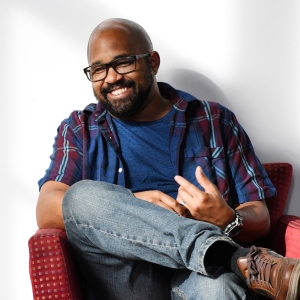 Anthony D'Juan is a Sacramento based playwright/director and has been active since 1996. His writing credits for the stage include THEORY OF THE DREAM, SAFE AT HOME: THE JACKIE ROBINSON STORY, KEEPING THE DREAM ALIVE, AND THE DREAM GOES ON, 3: BLACK GIRL BLUES (with Danielle Mone’ Truitt), and THIS IS HOW IT HAPPENED. Directing credits include OTHELLO, FIVE WOMEN WEARING THE SAME DRESS, A CLOCKWORK ORANGE (THE MUSICAL), TOP DOG/UNDERDOG, ENDGAME, BASH, OUR TOWN, A TIGER WITHOUT MERCY (world premier) ,THE MOUNTAINTOP, BOOTYCANDY and SKELETON CREW.
Anthony D'Juan is a Sacramento based playwright/director and has been active since 1996. His writing credits for the stage include THEORY OF THE DREAM, SAFE AT HOME: THE JACKIE ROBINSON STORY, KEEPING THE DREAM ALIVE, AND THE DREAM GOES ON, 3: BLACK GIRL BLUES (with Danielle Mone’ Truitt), and THIS IS HOW IT HAPPENED. Directing credits include OTHELLO, FIVE WOMEN WEARING THE SAME DRESS, A CLOCKWORK ORANGE (THE MUSICAL), TOP DOG/UNDERDOG, ENDGAME, BASH, OUR TOWN, A TIGER WITHOUT MERCY (world premier) ,THE MOUNTAINTOP, BOOTYCANDY and SKELETON CREW.
Vernon Lewis
Melissa Jernigan*
Michael Stevenson
Keith Riedell
Katherine Cannon*
Carlos Llontop
Stephen C. Jones**
Isaiah Leeper
Mari Oyaizu Carson
Ed Lee
Rebekah Fegan
Kimberly Taketa
Matt K. Miller
kaden zaldumbide^
Nicholas Raborn^
Samantha McLean Haas
ACTORS’ EQUITY ASSOCIATION (AEA)
Founded in 1913, this union represents more than 45,000 actors and stage managers in the United States. Equity seeks to advance, promote and foster the art of live theatre as an essential component of our society. Equity negotiates wages and working conditions, providing a wide range of benefits, including health and pension plans. AEA is a member of the AFL-CIO, and is affiliated with FIA, an international organization of performing arts unions. The Equity emblem is our mark of excellence.
Capital Stage Staff
MICHAEL STEVENSON - Artistic Director
KEITH RIEDELL - Managing Director
KATIE CANNON - Production & Company Manager
MISTY MCDOWELL - Marketing Manager
AALIYAH PETERS - Audience Services Manager
CARLOS LLONTOP - Technical Director
ED LEE - Resident Sound Designer & Engineer
RICH KIRLIN - Lead Carpenter
LOGAN HELLER, CHRIS SAECHAO – Box Office Assistants
RUBY SKETCHLEY – Front of House Assistant
ALYSSA MARIE MATHEWS - Concessions Associate
JAMIE JONES, PETER MOHRMANN, GAIL RUSSELL, JANIS STEVENS – Associate Artists
DEEDEE WALKER – Volunteer Coordinator
RAND DOERNING, ANDREW FRIDAE, ANA MUNTEAN, KAITLIN WIENSTEIN, CECILIA CASTILLO JUAREZ, NICHOLAS RABORN, KADEN ZALDUMBIDE - Apprentices
ELIJAH PETERS, RUBY SKETCHLEY - COVID Safety Officers
Capital Stage Board Members
Chastity E. Benson
California State Association of Counties
Donnell Brown
National Grape Research Alliance
Dan Brunner, Treasurer
Arts Patron
Melissa Conner
Seed Communications Design
Kathryn E. Doi
Hanson Bridgett LLP
Sherry Hartel Haus
Downey Brand
Steve Koonce
Arts Patron
Kris Martin
Arts Patron
Kristi Quesada Mathisen
Sacramento Country Day School
Lori Abbott Moreland
Arts Patron
Damaris L. Perez
Crowe LLP
Mike Tentis, Board President
UC Davis Strategic Communications
Peggy Wheeler
California Hospital Association
Board Emeritus:
Stephanie Gularte, Founding Artistic Director
Capital Stage
Peter Mohrmann, Co-founder
Capital Stage
Clif McFarland
Mitchell Chadwick
Arlen Orchard
SMUD
Jonathan Williams, Co-Founder
Capital Stage
Julie Stark
Arts Patron





